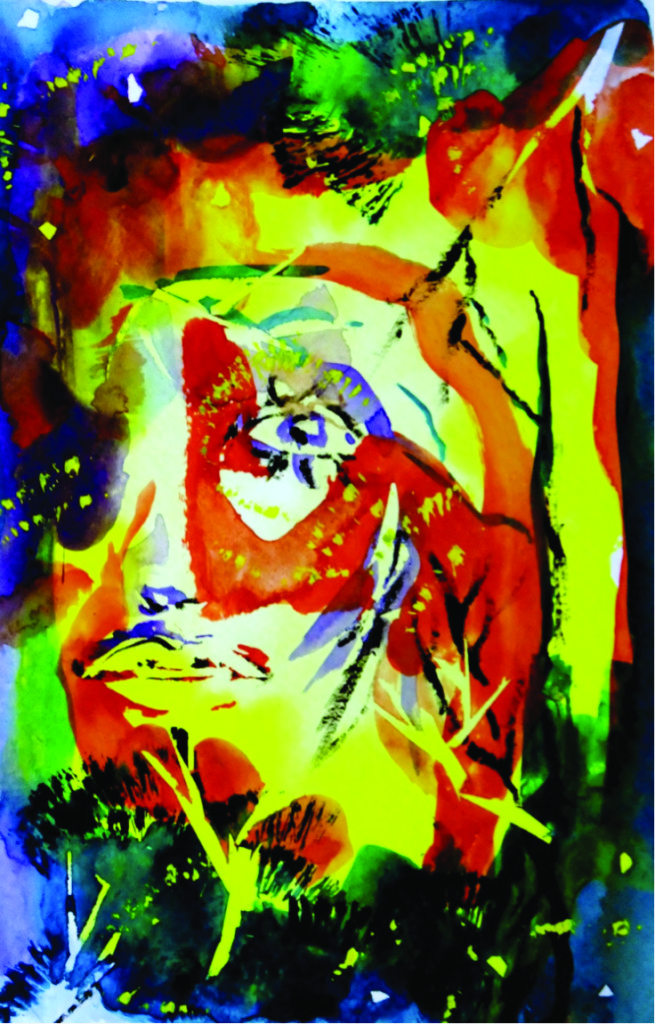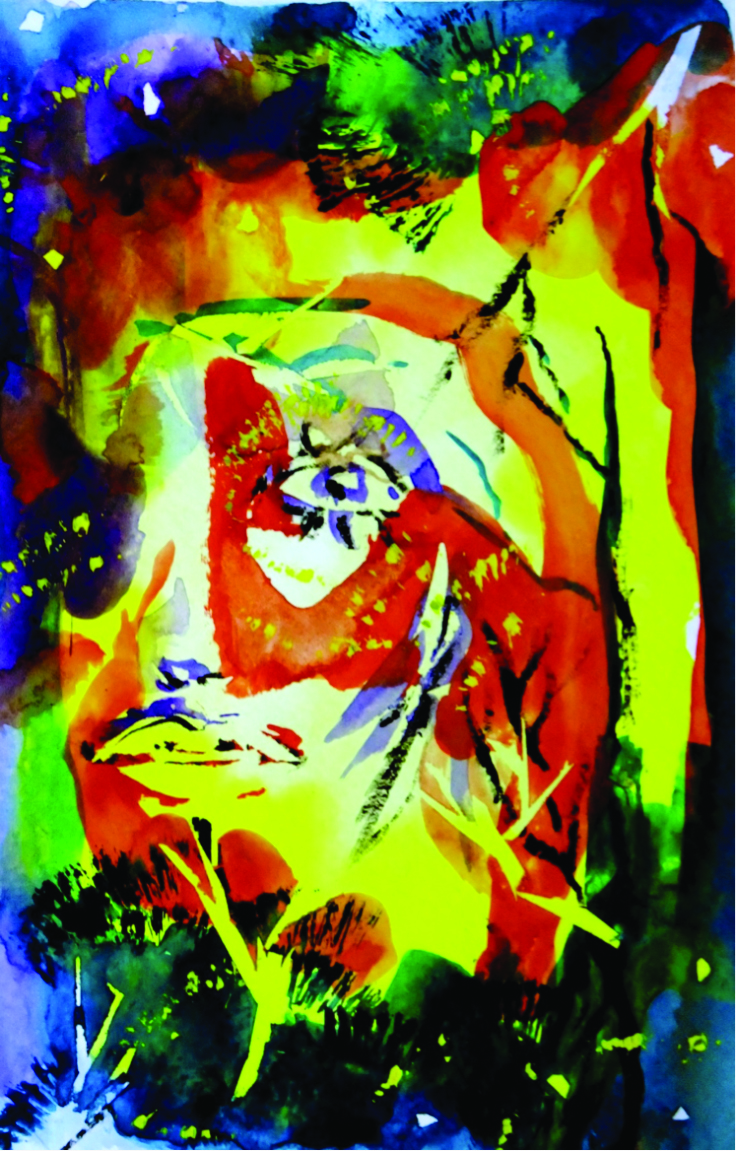By Kelsey Barnes, Assistant Editor of Saxifrage

Modern art is alive at Pacific Lutheran University. One artist keeping it alive is junior Katie DePreker.
Modern art is commonly defined as a genre in the fine arts that rejects traditional techniques in favor of experimenting with one’s own techniques. Essentially, both the definition and creation of modern art are both highly subjective and individualized.
Consequently, understanding and appreciating modern art is truly challenging until the viewer can experience a piece of art through its creator’s eyes.
DePreker, a painting major, agreed modern art rebels against art’s norms, but explained that appreciation of this genre accumulates over time. In her experience, modern art rouses an initial response in the viewer, which may be of “shock and disgust.”
DePreker feels that her work demonstrates the style of modern art because she has been formally trained, but she challenges and experiments with the traditional techniques that she’s learned to create her pieces.
In her latest series, DePreker explores “how our memories deteriorate over time” due to mental illnesses such as Alzheimer’s disease, which her grandmother suffers from.
DePreker wishes to communicate this sense of loss through her work and does so by leaving out an aspect from the narrative, as if that aspect is a lost memory. Yet, she hopes viewers will still feel a “sense of completeness” from each piece because the remainder of the narrative will be visually communicated.
One of the paintings in this series, “Hallucinate,” exemplifies DePreker’s aim for this collection and her style of modern art. She created this piece with formal techniques but utilized these techniques to create the abstracted effect she aimed for.
One formal technique she modified was watercolor. Conventionally, artists apply thin, transparent layers of pigment to their paper by dipping the brush, which holds the pigment, into water. Since the pigment is highly diluted, the pigments may run together or mix unless the layer has ample time to dry.
DePreker avoided this possibility with another technique of using tape to keep the face she partially represents from being obscured.
Usually, DePreker more concretely represents the subject of her pieces, and therefore the narrative is more legible. In “Hallucinate,” she recreates this fragmentary face out of abstracted shapes.
In this way, DePreker intentionally omits part of the piece’s narrative, which speaks to the sense of loss she evokes in her latest body of work.
Modern art is often excused by popular media as being aesthetically simplistic and one-dimensional, but this does not mean that its purpose is less significant than artwork from another genre. The simplicity of the piece may not be readily legible, but this does not restrict the piece’s purpose, or the message the artist is communicating.
In fact, this exhibits the beauty of a modern piece of art — it can be read in endless ways, including, but not limited to, the way in which the artist intended for it to be read.
Although an artist of any genre is subject to questions of intent, artists of modern art arguably consider these questions more often, based on the misconceptions about their genre. DePreker is among these artists.
“Especially with modern art, you’re trying to describe a concept that can’t be seen,” she said. “So you have to apply a lot of intellect to not only decipher what modern art is trying to say, but, if you’re the artist, you have to make sure you’re communicating something intelligent, and that’s coherent. Even though it might not initially appear that way, you have to be able to justify the choices you make.”
Modern art is highly conceptual, and without knowledge of the artist’s purpose for the piece, the piece may seem one-dimensional and difficult to relate to. Yet once the artist’s intention is understood, the piece becomes dimensional not only aesthetically, but also conceptually.
In this way, there is more to modern art than meets the eye.
This article originally appeared online at http://saxifrage.plu.edu and has been edited for print.

















